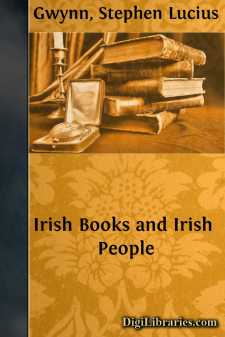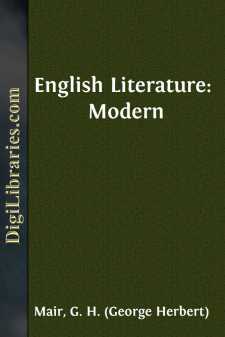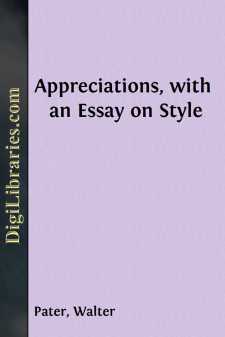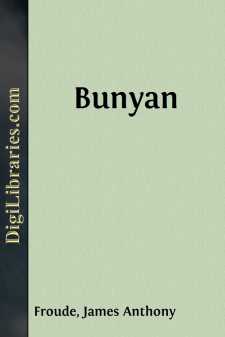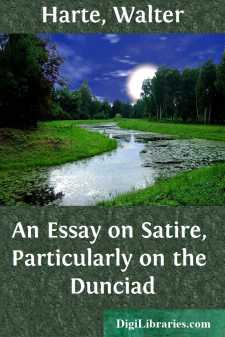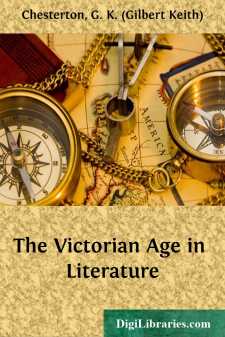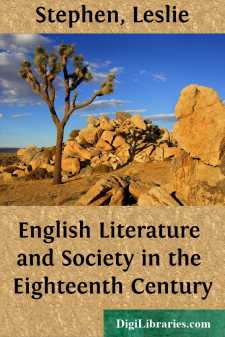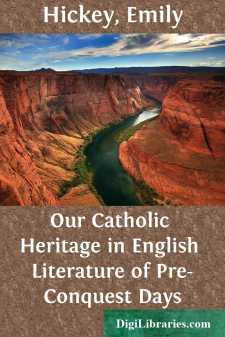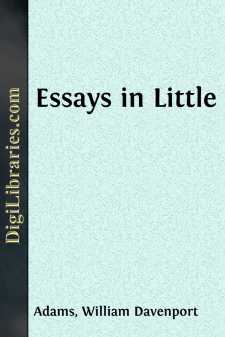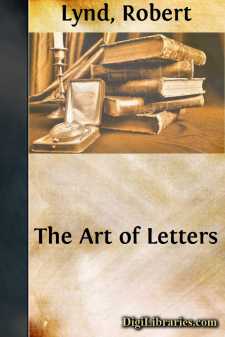Literary Criticism
- American 18
- Ancient and Classical 3
- Asian 1
- Australian & Oceanian 1
- Books & Reading 8
- Caribbean & Latin American 2
- Drama 2
- English, Irish, Scottish, Welsh
- European 7
- General 37
- Horror 1
- Humor 2
- Jewish 2
- Medieval 2
- Middle Eastern 3
- Poetry 7
- Renaissance 6
- Russian & Former Soviet Union 1
- Shakespeare 27
English, Irish, Scottish, Welsh Books
Sort by:
INTRODUCTION. My publisher must take at least some of the responsibility for reviving these essays. All bear the marks of the period at which they were written; and some of them deal with the beginnings of movements which have since grown to much greater strength, and in growing have developed new characteristics at the expense of what was originally more prominent. Other pages, again, take no account...
more...
CHAPTER I THE RENAISSANCE (1) There are times in every man's experience when some sudden widening of the boundaries of his knowledge, some vision of hitherto untried and unrealized possibilities, has come and seemed to bring with it new life and the inspiration of fresh and splendid endeavour. It may be some great book read for the first time not as a book, but as a revelation; it may be the first...
more...
by:
Walter Pater
STYLE [5] SINCE all progress of mind consists for the most part in differentiation, in the resolution of an obscure and complex object into its component aspects, it is surely the stupidest of losses to confuse things which right reason has put asunder, to lose the sense of achieved distinctions, the distinction between poetry and prose, for instance, or, to speak more exactly, between the laws and...
more...
EARLY LIFE. 'I was of a low and inconsiderable generation, my father's house being of that rank that is meanest and most despised of all families in the land.' 'I never went to school, to Aristotle or Plato, but was brought up in my father's house in a very mean condition, among a company of poor countrymen.' 'Nevertheless, I bless God that by this door He brought me...
more...
by:
Walter Harte
INTRODUCTION Since the first publication of Walter Harte's An Essay on Satire, Particularly on the Dunciad,[] it has reappeared more than once: the unsold sheets of the first edition were included in A Collection of Pieces in Verse and Prose, Which Have Been Publish'd on Occasion of the Dunciad (1732), and the Essay is also found in at least three late eighteenth- or early nineteenth-century...
more...
INTRODUCTION A section of a long and splendid literature can be most conveniently treated in one of two ways. It can be divided as one cuts a currant cake or a Gruyère cheese, taking the currants (or the holes) as they come. Or it can be divided as one cuts wood—along the grain: if one thinks that there is a grain. But the two are never the same: the names never come in the same order in actual time...
more...
by:
Leslie Stephen
When I was honoured by the invitation to deliver this course of lectures, I did not accept without some hesitation. I am not qualified to speak with authority upon such subjects as have been treated by my predecessors—the course of political events or the growth of legal institutions. My attention has been chiefly paid to the history of literature, and it might be doubtful whether that study is...
more...
by:
Emily Hickey
The beginnings of Literature in England. Two poets of the best period of our old poetry, Caedmon and Cynewulf. The language they wrote in. The monastery at Whitby. The story of Caedmon's gift of song.How many of us I wonder, realise in anything like its full extent the beauty and the glory of our Catholic heritage. Do we think how the Great Mother, the keeper of truth, the guardian of beauty, the...
more...
ALEXANDRE DUMAS Alexandre Dumas is a writer, and his life is a topic, of which his devotees never weary. Indeed, one lifetime is not long enough wherein to tire of them. The long days and years of Hilpa and Shalum, in Addison—the antediluvian age, when a picnic lasted for half a century and a courtship for two hundred years, might have sufficed for an exhaustive study of Dumas. No such study...
more...
by:
Robert Lynd
I.—Mr. Pepys Mr. Pepys was a Puritan. Froude once painted a portrait of Bunyan as an old Cavalier. He almost persuaded one that it was true till the later discovery of Bunyan’s name on the muster-roll of one of Cromwell’s regiments showed that he had been a Puritan from the beginning. If one calls Mr. Pepys a Puritan, however, one does not do so for the love of paradox or at a guess. He tells...
more...


